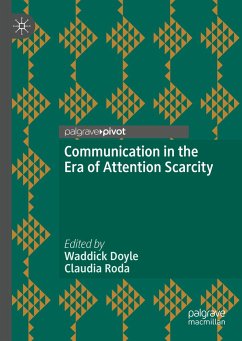
International Communication Strategies of Chinese Radio and TV Networks
Initial Observations
Versandkostenfrei!
Versandfertig in 6-10 Tagen
38,99 €
inkl. MwSt.
Weitere Ausgaben:

PAYBACK Punkte
19 °P sammeln!
This book discusses the effect of communication strategies in the course of China's national image building from both a theoretical and a practical perspective. The research data are collected via researcher's in-depth observation as well as focus group analysis and case study of selected Chinese radio and TV networks. On the basis of the empirical study and drawing on theories of international communication and political communication, this book also introduces an analytical framework that can be used to evaluate the effect of communication strategies in practice. Especially, the framework is...
This book discusses the effect of communication strategies in the course of China's national image building from both a theoretical and a practical perspective. The research data are collected via researcher's in-depth observation as well as focus group analysis and case study of selected Chinese radio and TV networks. On the basis of the empirical study and drawing on theories of international communication and political communication, this book also introduces an analytical framework that can be used to evaluate the effect of communication strategies in practice. Especially, the framework is applied to systematically analyze the formation and application of Chinese Communist Party's communication strategy with an aim at improving the national image and increasing its global influence. This book is of interest to graduate students and researchers who are interested in the broadcast communication in China.














